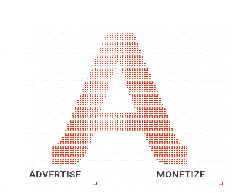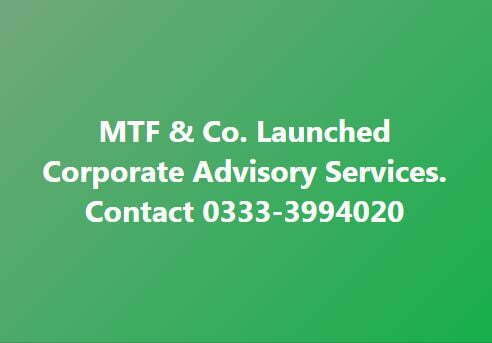Day 19: Goods and Services Tax (GST) for Specific Industries
Introduction:
Goods and Services Tax (GST) is a crucial aspect of the Australian taxation system, and its application can vary across different industries. Understanding the specific rules and exemptions for different industries is essential for effective GST compliance and planning. Today, we will explore GST for specific industries, including construction, healthcare, and education.
GST in the Construction Industry
1. What is GST in Construction?
GST applies to most goods and services supplied within the construction industry, including materials, labor, and subcontractor services. It’s essential to understand the GST obligations and exemptions specific to the industry.
- Taxable Supplies: Materials, labor, and subcontractor services are generally subject to GST.
- Input Tax Credits: Businesses can claim input tax credits for the GST paid on purchases related to their construction activities.
2. Progress Payments and Retentions:
In the construction industry, progress payments and retentions are common. It’s important to understand how GST applies to these payments.
- Progress Payments: GST is included in progress payments made throughout the construction project.
- Retention Payments: GST is accounted for when retention payments are released.
3. Special Rules for Property Developers:
Property developers face specific GST rules, including those related to the sale of new residential properties and commercial properties.
- New Residential Property: The sale of new residential property is subject to GST.
- Commercial Property: The sale of commercial property is generally subject to GST, but there are exceptions for existing residential premises.
GST in the Healthcare Industry
1. What is GST in Healthcare?
The healthcare industry has specific GST exemptions to ensure that essential health services remain affordable. Understanding these exemptions is crucial for healthcare providers.
- GST-Free Supplies: Many healthcare services are GST-free, including medical, dental, and allied health services.
- Taxable Supplies: Non-essential healthcare services and products, such as cosmetic procedures and over-the-counter medications, are subject to GST.
2. Specific Exemptions:
Several specific exemptions apply within the healthcare industry, ensuring that essential health services and products are not burdened by GST.
- Medical Services: Services provided by registered medical practitioners are generally GST-free.
- Hospital Services: Public hospital services are GST-free, while private hospital services may be subject to GST.
- Medications: Prescription medications are GST-free, but over-the-counter medications are subject to GST.
3. Input Tax Credits for Healthcare Providers:
Healthcare providers can claim input tax credits for the GST paid on business-related purchases, provided they meet certain criteria.
- Eligible Purchases: Claim input tax credits for purchases related to providing GST-free healthcare services.
- Record-Keeping: Maintain accurate records to support input tax credit claims.
GST in the Education Industry
1. What is GST in Education?
The education industry benefits from specific GST exemptions to keep education costs affordable. Understanding these exemptions is essential for educational institutions.
- GST-Free Supplies: Core educational services and related supplies, such as textbooks and course materials, are generally GST-free.
- Taxable Supplies: Non-core educational services and goods, such as uniforms and extracurricular activities, may be subject to GST.
2. Specific Exemptions:
Several specific exemptions apply within the education industry to ensure that essential educational services and supplies remain GST-free.
- Course Fees: Fees for accredited courses provided by recognized educational institutions are GST-free.
- Textbooks and Course Materials: Textbooks and materials required for GST-free courses are also GST-free.
- Extracurricular Activities: Fees for extracurricular activities may be subject to GST if they are not directly related to the core educational program.
3. Input Tax Credits for Educational Institutions:
Educational institutions can claim input tax credits for the GST paid on business-related purchases, provided they meet certain criteria.
- Eligible Purchases: Claim input tax credits for purchases related to providing GST-free educational services.
- Record-Keeping: Maintain accurate records to support input tax credit claims.
Key Takeaways
1. Understanding GST for Specific Industries:
- Familiarize yourself with the specific GST rules and exemptions for your industry.
- Recognize the importance of understanding GST obligations and claiming input tax credits.
2. Industry-Specific Considerations:
- Understand the unique GST considerations for the construction, healthcare, and education industries.
- Apply the relevant GST rules to ensure compliance and optimize tax planning.
3. Record-Keeping and Compliance:
- Maintain accurate records to support GST compliance and input tax credit claims.
- Ensure timely and accurate reporting of GST obligations.
Conclusion
Understanding the application of GST across different industries is essential for effective tax compliance and planning. By familiarizing yourself with the specific GST rules and exemptions for the construction, healthcare, and education industries, you can ensure compliance and optimize your GST position. Stay tuned for Day 20, where we will explore capital allowances.
Bookkeeping Services 
Accurate bookkeeping is crucial for effective tax management. MTF & Co. offers comprehensive bookkeeping services to ensure that your financial records are meticulously maintained, making tax filing and compliance hassle-free. With expert assistance, you can focus on growing your business while we handle the numbers.
Our services include:
- Transaction Recording: Precise recording of all financial transactions.
- Financial Reporting: Regular reports to keep you informed of your financial health.
- Tax Preparation: Organized records for smooth tax filing.
- Compliance: Ensuring adherence to tax laws and regulations.
Reach out to us at MTF & Co. to learn more about how our bookkeeping services can support your financial needs. Contact us at mtfco@onewebonehub.com.












